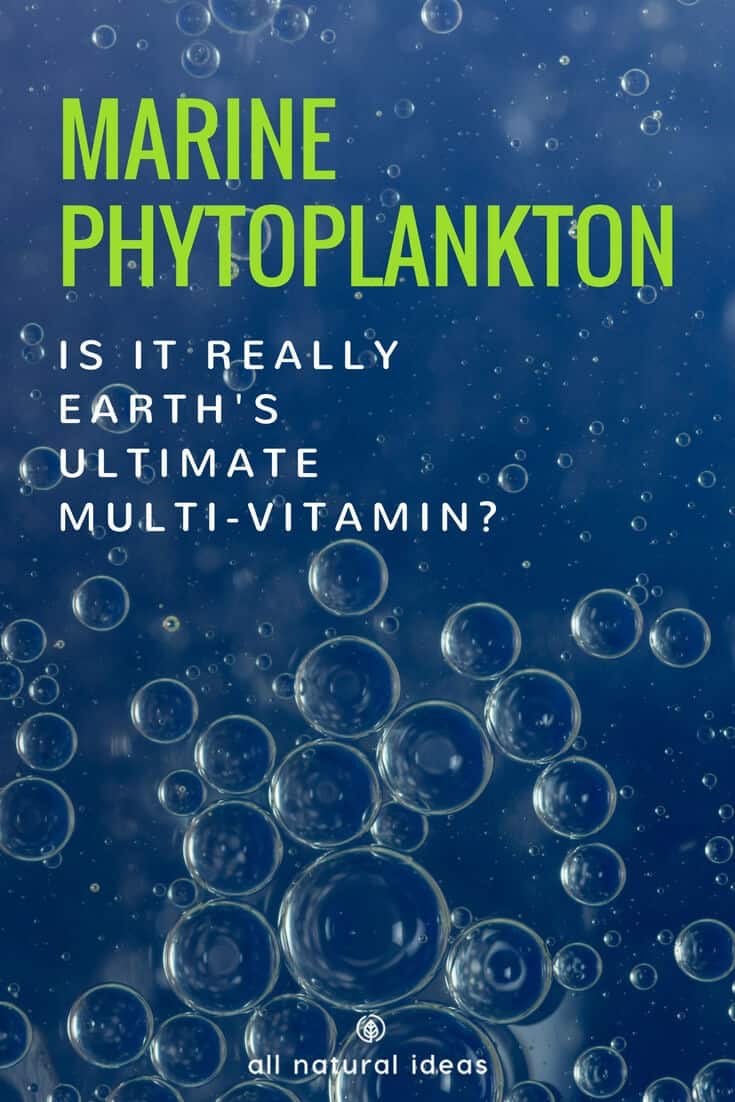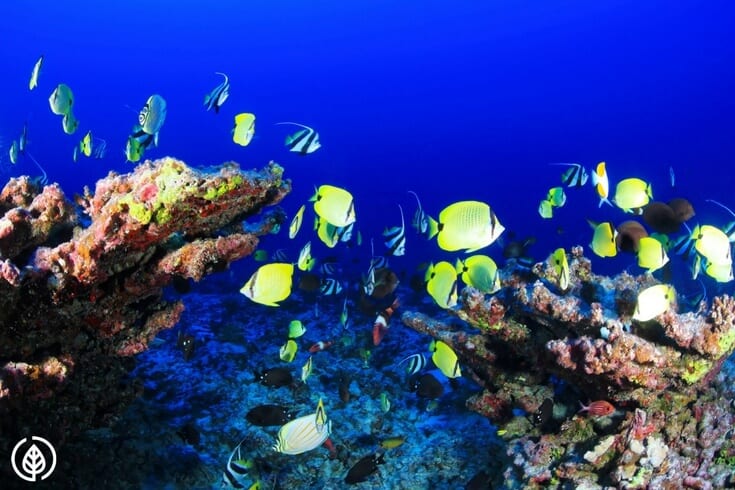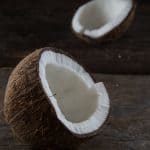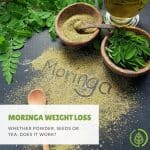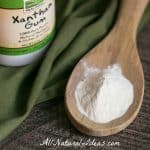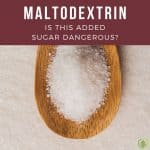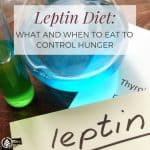A nutrient-rich supplement containing a vast array of nutrition is Marine phytoplankton. But is it safe to take, considering the state of the Earth’s polluted waters?
Could it be that the answer to perfect health is as simple as taking a shot of ocean water?
Though the thought of drinking salt water isn’t refreshing, the ocean may indeed be home to something that offers many impressive health benefits.
And this something isn’t a complex organism. In fact, it’s quite the opposite. Marine phytoplankton are single-celled aquatic microorganisms.
What is marine phytoplankton?
According to this exhaustive research, these single-celled microorganisms have played a key role in Earth’s formation over four billion years ago.
Specifically, phytoplankton helped form our planet’s atmosphere. This is something known the Great Oxidation Event (GOE). THe GOE, if you will, is like the Big Bang theory of Earth’s origin.
According to research in the journal, Marine Drugs, the term “phytoplankton” comes from a late 19th-century term. The term combines two Greek words. “Phyton” means ‘plant.’ And the translation of “planktos” is ‘wanderer’ or ‘drifter.’
Why is phytoplankton the hobo of the ocean? Since the beginning of time, it has occupied every nook and cranny on Earth.
And, it’s the dominant group of living things in the ocean. No other sub-aquatic species contains more diversity than phytoplankton.
But what does these facts have to do with health? Why do some natural health advocates believe phytoplankton offer an array of impressive health benefits?
Are they just trying to cash in on a slice of the approximately gigantic $70 billion supplement pie? Or, is their legitimacy to marine phytoplankton benefits?
For starters, the attraction of phytoplankton is this… It’s is an ocean algae that contains all the minerals of the sea.
And now consider that some of the healthiest supplements you can take are marine based. These include chlorella, spirulina, fish oil, blue-green algae, and kelp and other sea vegetables.
Some online articles hailing them as a miracle superfood. “Marine phytoplankton … [is a] microscopic algae, upon which the survival of 99% of all life forms on Earth depends.”
That’s great, but does that fact actually mean anything? We all depend on oxygen, but you don’t see anyone other than somebody with COPD (chronic obstructive pulmonary disease) taking supplemental oxygen.
Marine Phytoplankton: how does it work?
Speaking of oxygen, microalgae like phytoplankton renew oxygen in the atmosphere. Plus, they suck up carbon dioxide (CO2). And in by doing so, marine phytoplankton play a role in pho which is used for the synthesis of organic compounds through photosynthesis.
You’re likely familiar with the term photosynthesis. And the fact that it has something to do with plants. But to refresh your memory from basic biology, here’s what photosynthesis is: it’s the process in which green plants use sunlight to synthesize foods from carbon dioxide and water.
In plants, photosynthesis involves the green pigment, chlorophyll. Chlorophyll generates oxygen. This, in turn, “makes phytoplankton crucial primary producers on which every food chain relies,” to quote research from this study.
Interestingly, phytoplankton accounts for less than one percent of Earth’s total organisms. But they are responsible for more than 50% of the production of all organic matter on Earth. This is like saying New Jersey, despite being a tiny state–47th largest–ranks 11th in population (true fun fact!).
Without doubt, virtually all life on Earth depends on phytoplankton. But how can it benefit your health, if it does?
Well, researchers in studies like this one, state, “It is known for ages that marine organisms, including phytoplankton, constitute a pretty diversified source of compounds interesting for health and well-being.”
The study author(s) continue, “it is estimated that approximately 20,000 active substances originating from marine organisms are used in the industry and can be used as an alternative source of chemically synthesized medicine.”
Marine phytoplankton benefits
According to research, marine phytoplankton offers numerous important health properties. These include:
- Antioxidant
- Anti Inflammatory
- Protect DNA
- Anti cancer
- Anti-obesity
- Allergy prevention
- Cardioprotective
- Neuroprotective
- Liver protective
- Protects against sun damage
All these health benefits may derive from phytoplankton being rich in virtually every mineral in the sea. And the nutritional profile of these single-celled organisms are much richer than other forms of ocean algae such as spirulina.
In light of this, phytoplankton from the ocean may help regenerate the cells. And it’s because of this action that may help in the healing of chronic disease.
According to some, phytoplankton can “heal chronic disease in just days.” Is this claim true? It’s hard to say. There doesn’t seem to be definitive proof backing this claim. Thus, take it with a drop of salt water.
But the theory goes that the reason it’s beneficial is it bypasses your digestive system. And all these organisms from the sea go directly to your cells via the liver and bloodstream.
A doctor, Dr. Forest Tennant, who is a chronic pain specialist is quoted as saying:
“With people who are extremely ill…you can’t get their system to absorb the raw materials needed to make neurochemicals,” he explains. “Because [the marine phytoplankton] are so microscopic, they go right through a sick digestive system and a sick liver, and you’ll be able to start restoring neurochemicals and minerals even in somebody who’s critically ill. Nothing else I know of will do that.”
Dr. Tennant had his home and office raided by Drug Enforcement Agents (DEA) in November of 2017. Now, this fact does not imply that Dr. Tennant is a quack. You’ll have to do the research for yourself and decide if Dr. Tennant’s claims about phytoplankton have merit.
Marine phytoplankton side effects
Unless you live in a bubble, you know that the ocean is no sanitized, pollution-free bubble itself. And that’s the biggest safety concern with phytoplankton.
With not one, but several gyres of plastic swirling in the ocean (including one larger than Mexico), how do you know if you take microalgae supplements, you’re not ingesting the ocean’s filth? And that’s just plastic. What about oil and toxic chemicals and other scary pollutants like cadmium.
The short answer is that just like any other supplement, you have to do your research and know what to look for (more on this below).
Intolerance to marine phytoplankton may occur in people with a certain neurological disease. This disease is called Refsum’s.
In Refsum’s, there’s an overaccumulation of phytanic acid. Phytic acid is a branched chain fatty acid. However, it’s pollution that’s the main concern over microalgae supplements.
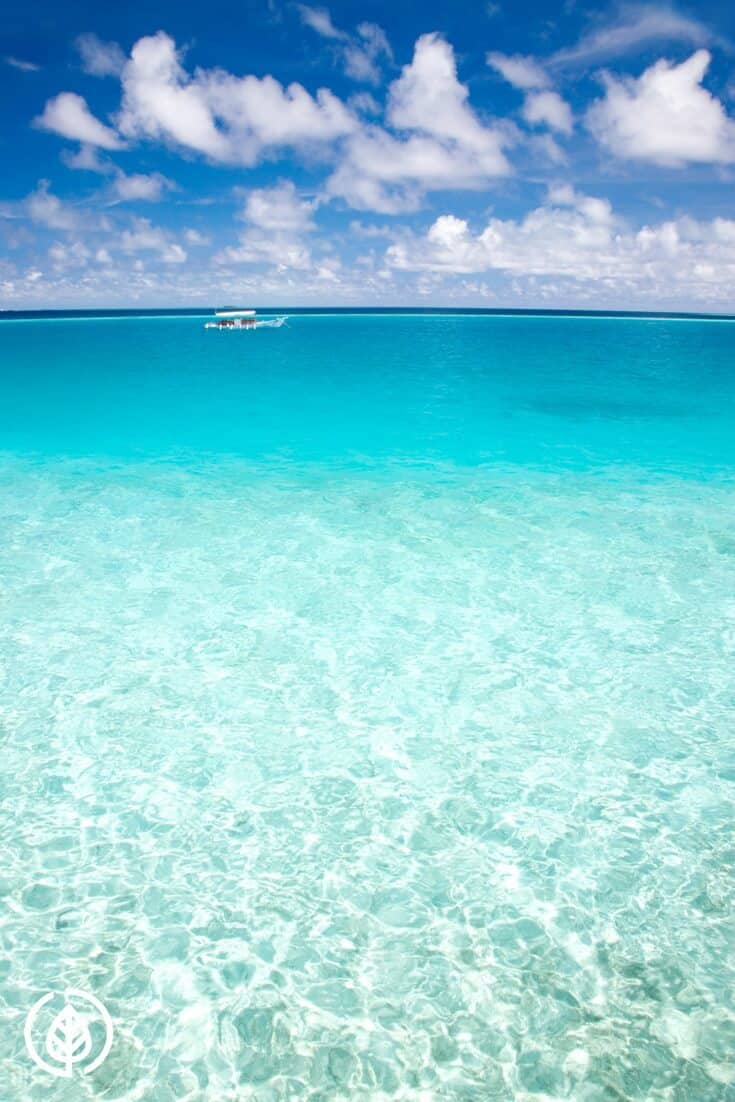
Marine phytoplankton for cancer and other treatments
Many diseases such as cancer are due to oxidative stress. And it’s the antioxidant activities of phytoplanktonic pigments that may be the ultimate weapon in the ongoing fight against cancer.
Specifically, it’s the chlorophyll in phytoplankton that show strong antioxidant activity. In addition, they also demonstrate the ability to program cellular death in cancer cells. Cancer cells don’t get the message that they’re supposed to die.
Furthermore, microalgae possess a strong ability to attach to heavy metals. This may help detoxify the body (in case it need it). And also, phytoplankton can help kill a certain herpes virus as well as a hepatitis C virus.
Chlorophyll is perhaps the most well-known compound in phytoplankton. It can help protect against cancer because it contains carotenoids. These are pigments that are high in antioxidants (and which give carrots their color). Chlorophyll also enhances the immune system. In addition, phytoplankton contains essential fatty acids.
Marine Phytoplankton: factors to consider when buying
So how do you get the benefits of marine phytoplankton? Do you just go to the ocean, take a shot glass and pound some salt water? Not exactly.
If you want to try it, it should be in raw, whole, form. And ideally, it should come in a dark bottle. That’s because similar to olive oil, heat and light can destroy the organisms. In fact, in research studies, the antioxidant properties of chlorophyll disappear in the presence of light.
Furthermore, high-quality marine supplements may be most beneficial if grown in a photobioreactor. Although it sounds scary, a bioreactor is nothing like a nuclear reactor. It that utilizes a light source to cultivate microorganisms. This way, the environment is totally controlled and free of pollution.
In a nutshell, phytoplankton might be one of the trendiest supplements you’ll be hearing about in 2018 and beyond. That’s because it contains the full spectrum of vitamins, minerals, trace minerals, essential fatty acids, electrolytes and other nutrients, such as the potent antioxidant, SOD (superoxide dismutase) content.
It seems that marine phytoplankton is the ultimate multivitamin. It contains everything beneficial, both above and below Earth’s surface.
